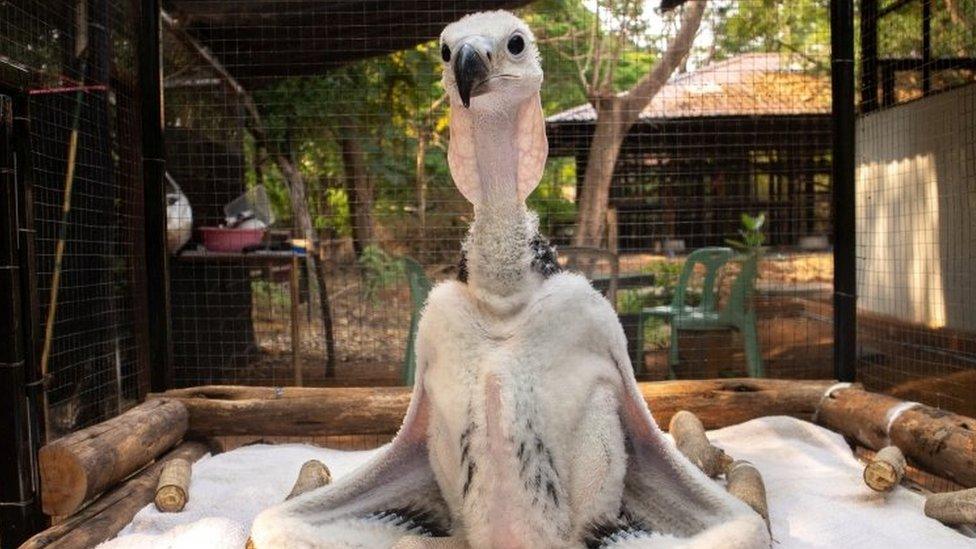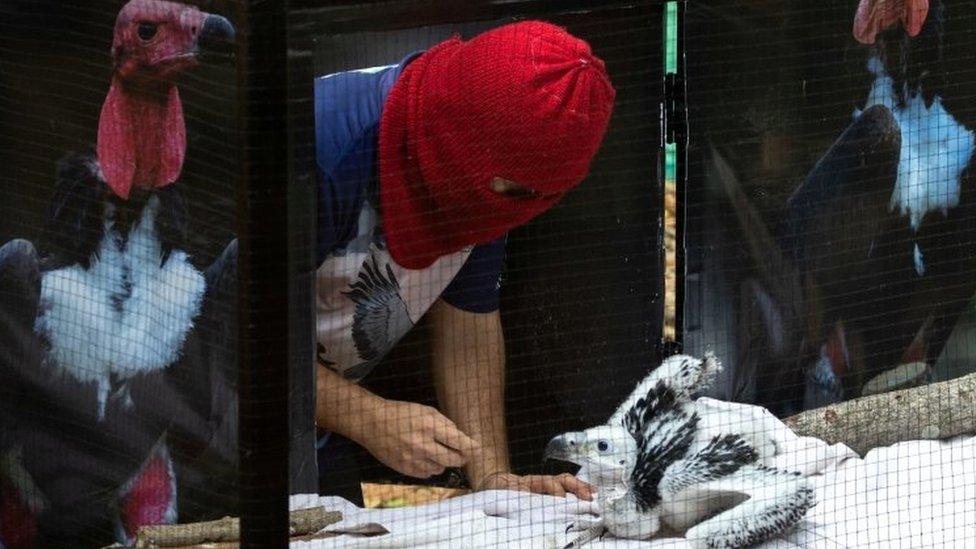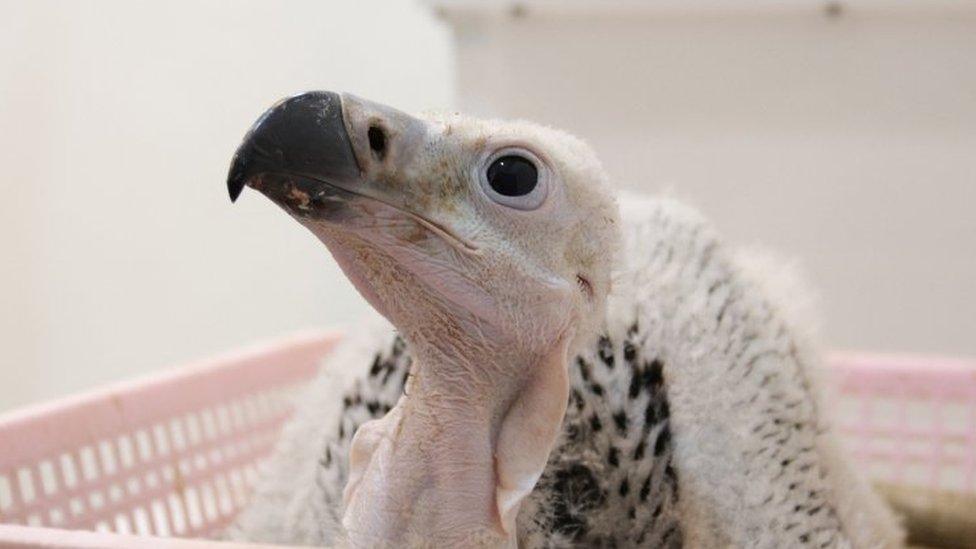Conservation: Rare red-headed vulture born in Asia for first time
- Published
- comments

Despite their name, red-headed vultures are born with white fuzz that will develop colour as they grow
When a rare red-headed vulture was born at a zoo in Thailand recently, one conservationist decided to take an unusual approach to bringing up the hatchling.
Zoo keeper Watchiradol Phangpanya has been dressing up everyday in a special outfit to make himself look like an adult vulture!
The endangered bird is the first red-headed - also known as Asian king vulture - to be bred in the continent and only the second in the world.
By disguising himself as a vulture, Phangpanya want to ensure that the new-born is be better prepared for its eventual release into the wild.
What's happened?

Phangpanya now lives, eats and sleeps outside the vulture's nursery room to help look after the chick
After nearly 20 years of trying to increase the red-headed vulture population, the endangered baby vulture was born in March at the Nakhon Ratchasima Zoo in northeast Thailand.
The conservation team hopes it can create a large enough population of the birds for eventual release into the wild.
Phangpanya and his colleagues want to ensure any hatchling bred in captivity does not imprint on humans so they decided to dress up to look less human and more like an adult red-headed vulture!
Four times a day, Phangpanya puts on a black, long-sleeved shirt, red gloves, and a red balaclava, hoping to imitate the species feeding its baby.
He explained: "It's necessary to disguise ourselves as a bird, thereby leading them to see us as closest to what their parents would look like."
He added that he aims to prevent the chick's over-dependence on humans and that this was the best chance to help develop the bird's natural instincts.
The baby vulture is fed rabbit, deer, chicken and rat meat to simulate its diet in the wild.
After feeding, the chick warms up in the sunshine to get the vitamin D it needs for its physical and behavioural development.

The rare baby vulture was born last month
Hunting and changes to its habitat mean the red-headed vulture is extinct in the wild in Thailand and its numbers are significantly diminished globally.
Zoo director Thanachon Kensingh said that he hoped the dedicated conservation work will pay off in the future.
"We would like to see the Asian king vulture soar once again through the skies of Thailand," he added.
